The Marvel Cinematic Universe may be filled with our favorite superheroes; it lacks a certain degree of diversity for leads in titular films that allows underrepresented communities to feel seen and have their stories heard. That’s why it’s important for films like “Black Panther” to exist because not only does it expand the MCU, it brings much-needed cultural nuance to superhero standalone films and finally acknowledges that we all have our owns stories to tell. And Destin Daniel Cretton’s “Shang-Chi and The Legend of The Ten Rings” embodies those ideals of representation because it is more than just the first Asian-led superhero film of the MCU. Instead, it is a celebration of a culture that has gone under-represented for far too long.
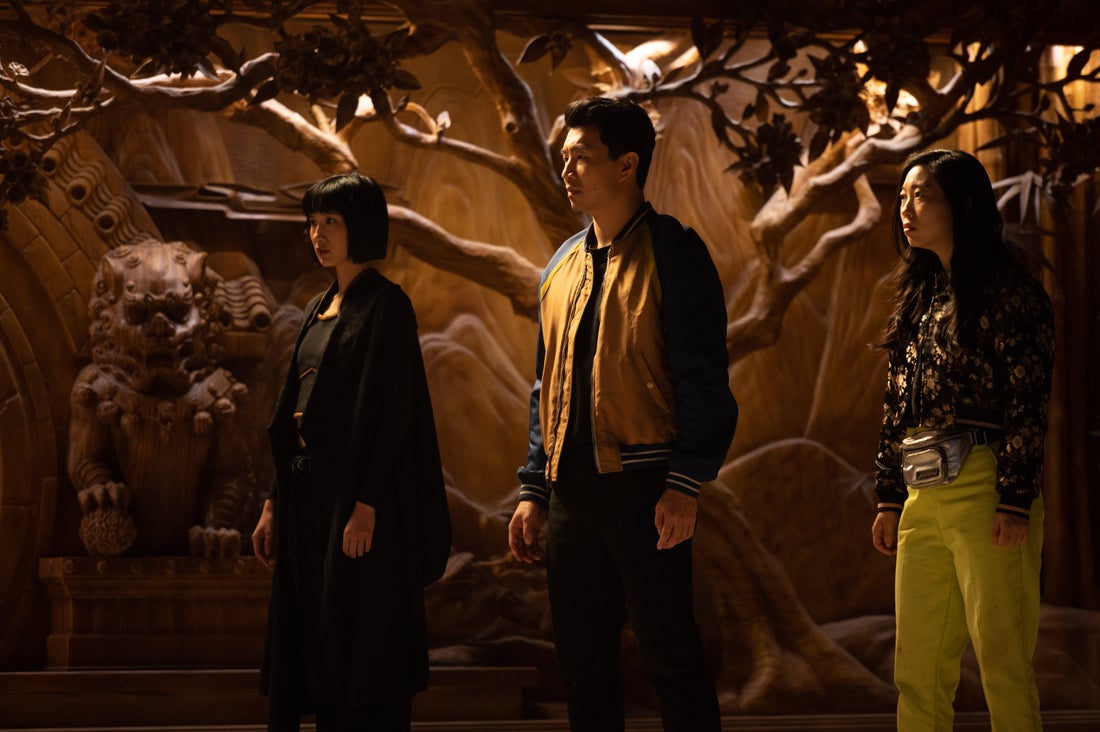
“Shang Chi and The Legend of The Ten Rings” reminds us that not all origins stories are the same. The formula isn’t just applicable to the billionaire playboy philanthropists, Norse gods, good soldiers, high school kids, or former convicts. The film deconstructs the hero’s journey and discovery of identity tropes and rebuilds it to create something new and fresh. Though aspects of the emotional complexities of a troubled family and the weight of filial expectations are familiar within the MCU, the story takes on an entirely different form because the film views it through an Asian lens. And because of that, it is the kind of superhero film that recongizes that the Asian diaspora also has their stories to tell.
Considering that this is a new origins story for the MCU, the film takes its time to establish the character arcs and dynamics that will help shape Shang-Chi’s characterization and chart a path toward his heroic destiny. Though there’s a world-ending stake for our titular hero to prevent, at the center of “Shang-Chi” is a story of self-discovery. But the strangest thing about all of this is that Shang-Chi’s father, Wenwu (Tony Leung), and sister, Xialing (Meng’er Zhang) went through have more exciting and emotionally engaging stories, along with getting higher quality action sequences. All of that turns Shang-Chi into a supporting character of his own film.
Shang-Chi (Simu Liu) is the son and heir apparent to the Ten Rings, a criminal organization run by Wenwu, a near-immortal being who used the rings’ power to operate in the shadows to create empires and manipulate governments from afar. These are no ordinary rings as they can mow down entire armies with one arm thrust or launch the wearer into the air and then cushion his landing. Though it is a power not to be underestimated, it is nothing when compared to the sacred energy of the secret village of Ta Lo has to offer.
On his search to find a mystical beast to add to his army, Wenwu comes across a moving forest that confuses anyone who gets lost within the trees, and if one cannot get out or find the entrance, they would be swallowed by it. Not to be thwarted, Wenwu sacrifices his men to find it. When he comes across one of Ta Lo’s villagers, Jiang Li (Fala Chen), he believes that she can take him to the entrance. However, Jiang Li won’t provide the trespasser with that path so freely and proves to be more than a match for him. Both have contrasting styles. While Wenwu fights aggressively and relies on the power of the rings, Jiang Li’s style is much more fluid, like water, and moves just as gracefully. The Wuxia-inspired fight between the two is elegant and moves like a dance. It’s hard not to notice those flirtatious glances and subtlely soft touches exchanged between them. THe fight is so refreshingly different from any of the other ones in the MCU that one could argue it is not only the best in the entire film, it is a top tier of anything that came before it.
And so, the two leave their former lives behind and start a family. But, as loving as they are, tragedy strikes when one of Wenwu’s enemies seeks vengeance for past atrocities. Though Jiang tries to shield Shang-Chi and Xialing, she ultimately falls to the trespassers, leaving her two kids without a mother and a husband without a wife. And Wenwu not only takes out his hatred on those who murdered his wife, but he also takes his rage out on his kids by forcing Shang-Chi to endure an intense training regiment while leaving Xialing at a distance.

Shang-Chi (Simu Liu) then runs away to live his life as a normal kid in San Francisco. Not knowing what it is like to be a kid, he lives his life without a care in the world. And with his best friend Katy (Awkwafina) by his side, there is nothing to hold them back but their friend’s disappointment that they aren’t living up to their potential. But when Wenwu sends his soldiers like Razor Fist (Florian Munteanu)and Death Dealer to retrieve his kids, it is up to Shang-Chi to embrace his bloodline, both the good and the bad, and confront his father to stop him from unleashing a powerful evil.
Though MCU films have explored the fierce conflicts within the parent-child relationship before, none has resonated with me more than the one in “Shang-Chi.” While Iron Man, Thor, and Black Panther all had rather joyful dynamics, the dynamic between Shang-Chi and Wenwu is tragic and heartbreaking. It portrays the near impossibility of meeting the high filial expectations set by the demanding family patriarch.
The grief and loss that Wenwu suffers turn him into more of a tragic antagonist than a traditional baddie. Unlike some of the earlier villains of the MCU, Wenwu’s motivations in the film don’t necessarily reflect anything nefarious. Instead, his intentions are purely based on the anguish and grief that he is suffering. ANd he would do anything to bring back what he lost even if that is at the cost of his relationship with his children or something more cataclysmic. The former of which is far more interesting than the generic latter.
The tragedy strains the family dynamics to a point where Wenwu returns to his old ways of running a criminal empire. He then takes out his rage on his son by putting him through a punishing training regiment upon Shang-Chi, while also neglecting her daughter. However, she takes this as a sign that if she wasn’t going to be let into her father’s empire, she could build her own. Therefore she watched and trained herself, ten times harder, to become someone that her father wishes he never ignored.
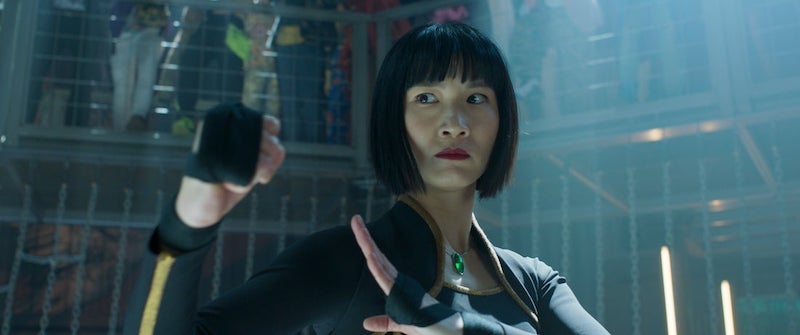
But it was Shang-Chi’s desertion and his failure to come back home to take her sister that took a toll on everyone. Thus, when it was time for everyone to return to the fold, it would be something that Shang-Chi could either embrace his legacy, the good and the bad, or continue to struggle with inner turmoil by running away.
Because Marvel Studios is committed to bringing fans an MCU that embraces diversity, we get to see more of a world that has gone unexplored. As such, we not only see a film that celebrates a culture that has gone underrepresented for too long but one that is seen through the Marvel lens. This means places like Ta Lo can be a reflection of that commitment. And that isn’t just represented through the characters on screen or the martial arts, but through other aesthetics like the language, set pieces, and mystical animals like dragons, guardian lions, nine-tailed foxes known as huli jing, and a djaing, a faceless but very huggable and adorable creature with wings.
The sets within these places feel like characters themselves, with each piece having a story to tell. Some of them show the passages of time. For example, when Shang-Chi, Xialiang, and Katy are in Ta Lo, Jiang Nan (Michelle Yeoh), Shang-Chi’s aunt, stands in front of a wood craving that chronicles the history of the hidden village. She also gives him the necessary exposition to help inform Shang-Chi of his destiny and that his greatness is the byproduct of two people, the good and the bad.
Cretton’s character work is exceptional because it comes from a place of authenticity. The film has more than the on-screen representation reflecting the diverse world that we live in today. It is embedded within the language of the script as well. Whether it’s the communication, enunciating names, types of dishes, or the signs of reverence to elders, this is a kind of film that speaks to the heart of the Asian and Asian-American community. And that is a rare thing to see, which makes me appreciate seeing POC superhero features more. There is even a bit where Katy doesn’t speak Mandarin fluently, but she understands it. And the joke about speaking ABC hits way too close to home that it made me laugh.
Even Ta Lo has so much to offer than just the generic hidden village aesthetics, as it is filled with dragons, imperial guardian lions, and huli jing, and djaing. For a film to give these mythological creatures that space that expands the MCU and honors the Chinese culture shows how Marvel is committed to celebrating and exploring every facet of the diverse world we live in today. Additionally, having Cretton and Dave Callaham on board for the story and script shows an understanding of the importance of staffing the creative team with people who experience these stories and live and breathe the culture.
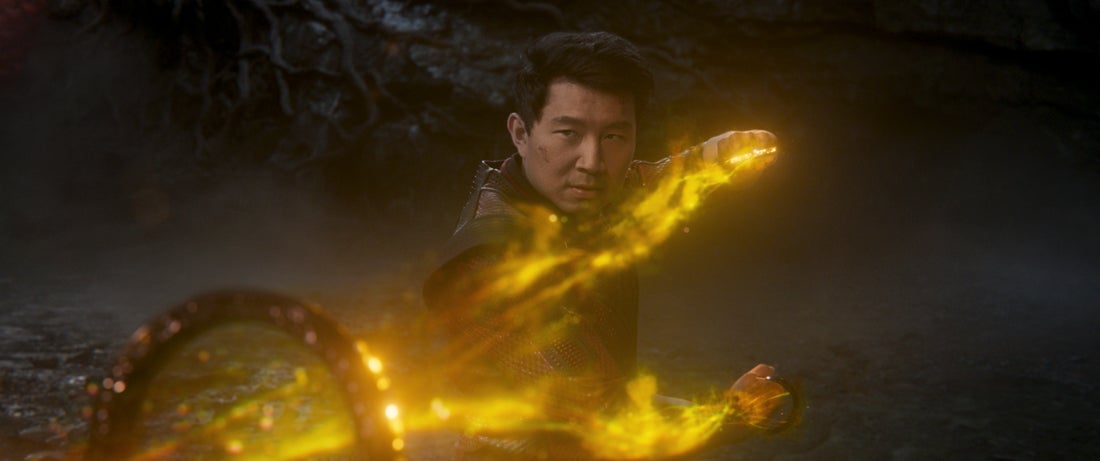
And the character work is solid in “Shang-Chi and The Legend of The Ten Rings.” This shouldn’t come as a huge surprise considering Cretton’s career. The first two acts explore much of the characters’ pasts, with much of it leaning towards Shang-Chi and the strained relationships that he shares with his estranged family. Shang-Chi worked hard to bury his past and hide everything about it from his friends, making his reunion and homecoming all the more uncomfortable because it reawakens those memories of a lost mother and the emotionally distant father.
While the family drama does provide an excellent arc for Shang-Chi, the film belongs to Leung and Zhang. They are stellar in their performances, and because of that, their stories are far more compelling and carry more emotional weight than the title hero’s quest to find his identity. Sure Shang-Chi strives to step out of his father’s shadow and reconcile with his long-lost sister, but the reality of it all is that we see a lot more emotional output from Xialing and Wenwu as they lost a brother and a son, respectively. Though being outshined isn’t something to be overly concerned about, they both have elements to their stories that have us sympathize with their characters. Xialing fought to overcome a sense of betrayal from her brother and neglect from her father. And for Wenwu, it makes for a very sympathetic character with redeeming qualities.
Still, Liu makes for a very charming character who has plenty of likabilities and can still throw down a few wisecracks. But, of course, if everyone only knew his secret, because his friends braid him and Katy for not living up to their full potential. Although he speaks four languages, and Katy graduated from Berkely, the two work as valet drivers who go out on late-night benders and spend much of their time at karaoke bars. Yet, the two are having the time of their lives. And it clearly shows. Even when their lives are in danger, there is that connection the two have that shows they would defend the other no matter the cast. Liu and Awkwafina’s chemistry never misses a beat.
The action sequences are also hard and fast, thanks in part to the late Brad Allan’s fight choreography that is equal parts beautiful Wuxia and lighthearted Jackie Chan stylings. But they also have very few cuts and have time to breathe as the long takes and one-shots allow us to see action as it should be. The beautiful fight between Jiang-Li and Wenwu is playful, fun, and a bit flirtatious. At the same time, battles between Shang-Chi and Razorfist on a metro bus and another between Deathdealer on scaffolding have real stakes as Shang-Chi has to defend himself while also protecting his friends. And things only escalate towards the overextended third act, culminating those fights with few mythical beasts added to the mix.
And Joel P West’s music and Bill Pope’s cinematography transports audiences to a place that stays true to the cultural aesthetics and character traits of Shang-Chi. Those parts of San Francisco, the seedy underworld of Macau, the mystical village of Ta Lo, or the jaw-dropping fights and thrilling escapes celebrate part of the East Asian culture, its history, and what has become mainstream.
“Shang-Chi and The Legend of The Ten Rings” is what Marvel Studios needs to expand its story in the right direction. By tapping into its diverse roster of heroes, we get to see much more of a line of heroes that reflects the society we live in today. And as such, it is essential to have creative artists that speak to that authenticity, whether it is in the writing or directing. And you add a few icons like Tony Leung and Michelle Yeoh to support the new generation like Simu Liu, Awkwafina, and Meng’er Zhang. But, more importantly, kids will finally be able to see themselves in the heroes on screen.
8.5/10


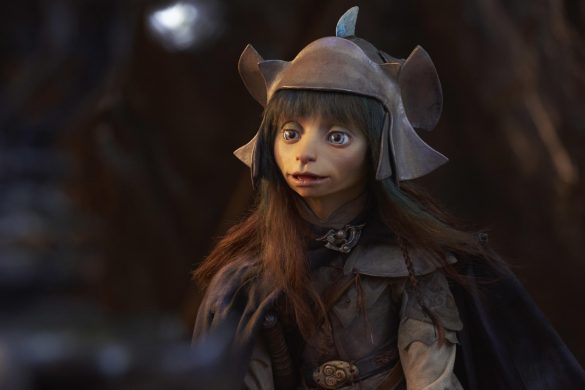


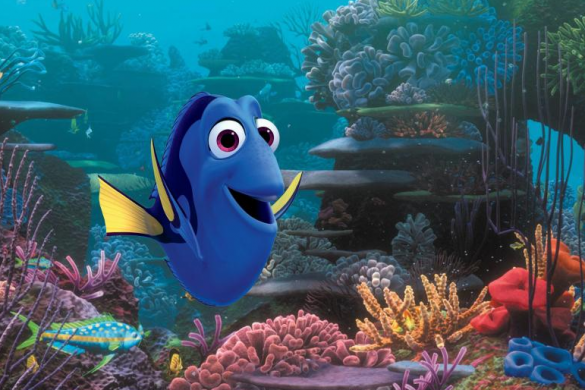
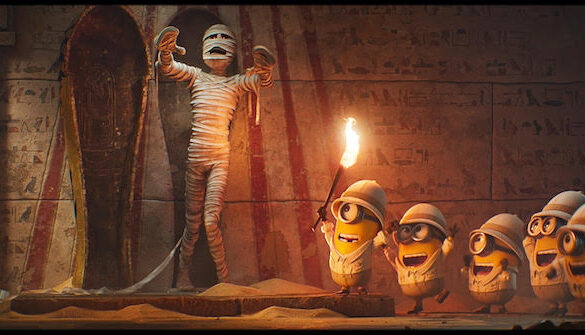
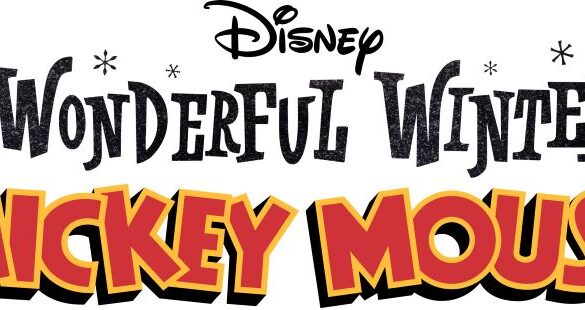
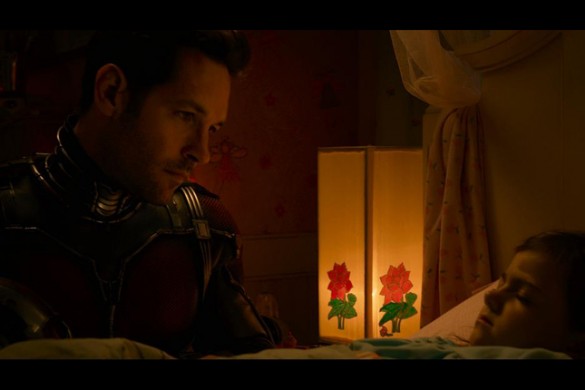
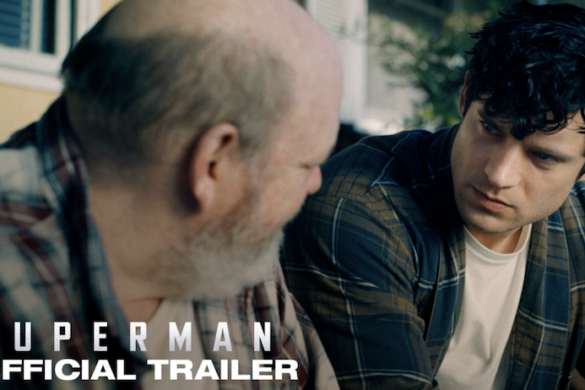

1 comment
Gonna have to watch this. Thanks for the review.